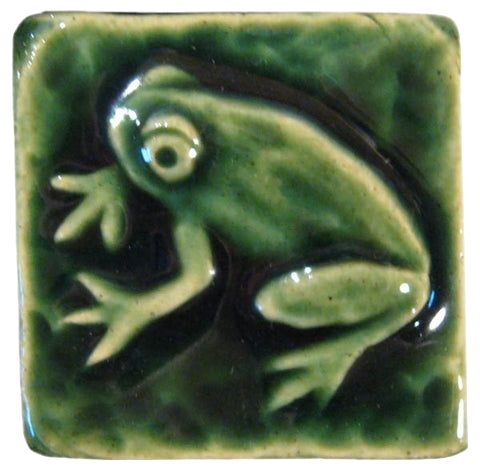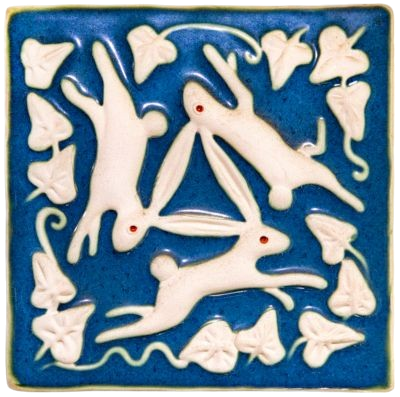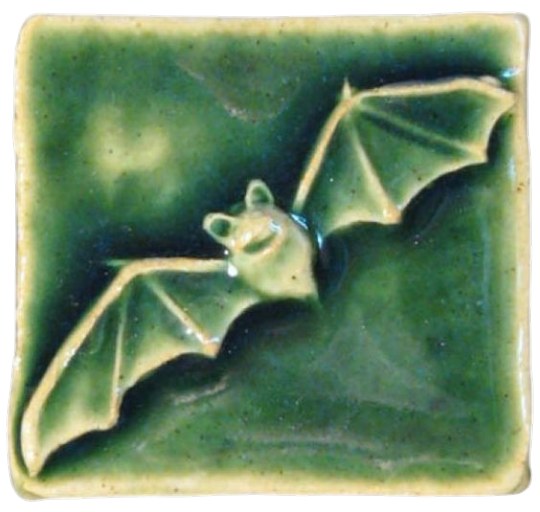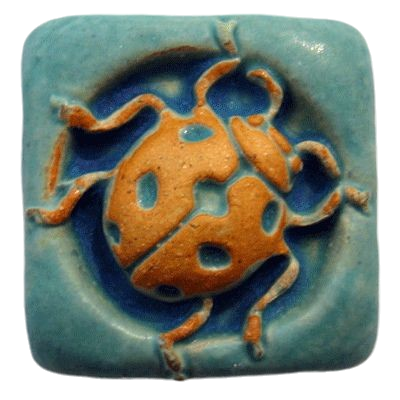It may sail a bit off course for the moment, but it just needs support from a pilot and a doctor. When you have eliminated the impossible - like the resistance from a certain Estate - whatever remains must be Johnlock. Watch out for the pirates and pay attention to code! ;)
Don't wanna be here? Send us removal request.
Photo

I swear to gaaawd this motherfuckin gif breaks my heart everytime. Sherlock radiates nothing but confidence when he thinks and talks about going to see John but then this… Sherlock walks into that restaurant like ‘fuck yeah this is going to be awesome he is going to be over the moon’ and then gets one look at John and he really truly falters and doesn’t have the slightest idea of how to approach him… Then in a completely Sherlock fashion, he proceeds to act like an absolute and utter moron because all that confidence has gone out the window without so much as a fare-you-well. But that look of hesitancy and loss of control before his total cock-up of this reunion is one of the most endearing and heart-wrenching moments of this entire show for me.
519 notes
·
View notes
Text
hi let's talk about how john watson shields his face with his hand only when he’s crying.


now allow me to present:


378 notes
·
View notes
Text

Inktober No. 23 - Engrossed
The wedding related stuff had taken over Sherlock's life for weeks and the day itself was the worst he had in months. He tried to endure it with stoic patience.
Brief return to my default-comfort-way-of-drawing.
From @bluebellofbakerstreet 's promptlist for Inktober 2024.
I am flattered if you reblog, but do NOT post my art on other sites/social media or use in any other way without my written permission.
247 notes
·
View notes
Text

Inktober No. 20 - Black
The Coat (TM)
From @bluebellofbakerstreet 's wonderful promptlist for Inktober 2024.
I am flattered if you reblog, but do NOT post my art on other sites/social media or use in any other way without my written permission
308 notes
·
View notes
Text

J: Errr... Whose go is it?
S: Mycroft is taking his time to make a dramatic finale
J: You mean he can win from here? We've only been playing five minutes.
M: I'm simply thinking my actions through.
S: And those actions are 'get cheese' and 'win game'.
M: How little you think of me, brother mine. I'm actually thinking 'humiliate you two at children's game'.
J: Next time I'm playing Solitaire.
244 notes
·
View notes
Text
Rehoming Holmes

So here's the current interesting problem: You discover that you're in the process of writing a cozy mystery. And then you discover that the lead sleuth in this work is going to be Sherlock Holmes. (And of course Dr. John Watson is there too.)
The big question, therefore, becomes: when?? And secondarily, where?
(Inserting a break here, because this goes on a bit. Caution: contains World War I, railway lines, chronic illness, unrealistic attempts to be a hermit, and [what did you expect?] bees.)
Wedging the cozy mystery concept into Sherlock Holmes's schedule is inevitably going to be a dicey business. Because Holmes, in Canon—right up until after the events of "His Last Bow," in the collection of the same name—is a really busy man... too busy by far to be doing the cozy thing, be he ever so retired.
We don't know a whole lot about the details of that retirement except for what Watson tells us in the preface to the collection.
The friends of Mr. Sherlock Holmes will be glad to learn that he is still alive and well, though somewhat crippled by occasional attacks of rheumatism. He has, for many years, lived in a small farm upon the Downs five miles from Eastbourne, where his time is divided between philosophy and agriculture. During this period of rest he has refused the most princely offers to take up various cases, having determined that his retirement was a permanent one. The approach of the German war caused him, however, to lay his remarkable combination of intellectual and practical activity at the disposal of the Government, with historical results which are recounted in His Last Bow.
Now, when you start looking into some other details surrounding this retirement, there are some points that immediately start to be troublesome. ...Well, for me, anyway.
First of all: that picture up at the top is of the house to which he's supposed to have retired. Various Holmesians who've looked into the situation over the years seem to have settled on this spot, in East Dean in Sussex. And it has acquired a blue plaque stating that that's where Holmes wound up... which is all very well.
But for the purposes of my own storytelling, I've got concerns.
We know from various comments dropped by Watson in Canon that he and Holmes haven't seen each other for some years, and that Holmes has been living "the life of a hermit" on his farm with his bees.
What I'm not sure about is how you live like a hermit in a house which is (and then was) sited directly on the East Dean village green, with the village pub right across the green from you. It seems like a spot poorly chosen, and maybe chosen in haste. (And how big can that "farm" be, with the village around it? Honestly.)
There's another problem, though, that it astounds me never occurred to Arthur Conan Doyle when he initially chose to retire Holmes to that neck of the woods. The whole area near Eastbourne, sited as it is really close to the south coast of England, is (relatively speaking) an exposed, chilly, damp area frequently exposed to coastal gales. That Doyle could write the word "retired" just one sentence away from the one that describes Holmes as suffering more or less chronically from rheumatoid arthritis gives me all kinds of trouble. Because I sure know what my arthritis does to me in cold damp weather! And the first thought I had on reading that line in the wake of wanting to tell a story realistically based further along in Holmes's retirement period was "Wow, I need to get him the hell out of there."
Yet here, as has happened at other happy writing moments, I find that a kindly Universe has put what I need right into my hands. Because I invite you to take a closer look at that blue plaque on the house in East Dean.

Some Holmesian who was a stickler for accuracy refused to date this retirement any further along than 1917, the date of "His Last Vow." The story itself implies that Holmes (and Watson, now reunited in government service) have much more to do after '17. And then, after 1918, when WWI ends... then what?
Well, soon enough Holmes goes back into official retirement. But he does it somewhere else... because Watson's with him again.
First of all, the location changes because that little house above might have been all right for one "hermit". For two men, though? They'll need a bit more room... and maybe also a little more privacy.* ...It should be noted here in passing that as of LAST, Watson appears to have mislaid the wife mentioned in BLAN ("The Blanched Soldier"). Is it his first wife or his second...if there was a second? Who the hell even knows, at this point? (The jury's apparently still out on the subject, and some investigators suggest there might have been as many as six wives. ...But I digress.)
Anyway, the ensuing scene between Holmes and Watson, as Holmes's Doctor explains to him how things are going to be from now on since they're together again, is so easy to imagine that I'm not sure I need to do anything about it in the cozy mystery proper but allude to it in passing. The laying down of the law. The inevitable "I don't need to be coddled" bullshit. The suggestion that Holmes, for a comfortable retirement, needs a house that's sited in better-protected countryside.
Also, due to the inevitable fallout from Holmes's wartime exploits, they're going to need a house that's sited closer to a decent rail connection to London, with a telegraph office just a mile or two away if Holmes needs it... or if a client needs to come see him. (And there also needs to be a handy telephone exchange, annoying though it'll be that Lestrade's or Dimmock's successors can just ring him up and whinge at him.) Holmes will also need a place where he can at least get a decent wireless signal so he can listen to the concerts from the Continent, and closer. (Because if I wind up positioning this cozy in 1922, as seems likely, this newfangled thing called the BBC has just come online: and canonically speaking, Holmes has always been an early adopter.)
Most importantly, though—so Watson will claim—Holmes needs a rural home that will be better for the bees. The Eastbourne area isn't really great for them, being too exposed and right on the borderline of where bees can locally thrive. Fifteen or twenty miles north or so would be far better, putting less stress on the bees and therefore being less likely to skew Holmes's observational results. With this outcome particularly in mind, the two housemates-to-be can look around for a house sheltered by the Downs' low hills, with nearby fields of arable crops—very likely hops—where the bees can do their work untroubled by excessive salt air. And Holmes can tend to and study his charges in more clement conditions that won't periodically leave him immobile and in anguish due to a less forgiving climate's exacerbation of his arthritis.
Will Holmes buy into this hilariously misdirected argument without realizing (or admitting that he's realized) what Watson's trying to pull? Who can say. Holmes, as per usual, is going to put up every kind of resistance he can to avoid revealing that this outcome is absolutely what he wants more than anything. Watson, of course, will receive Holmes's fake-cranky temporizing with his usual patience... and start writing to estate agents in villages convenient to the main north-south rail line. And on the day Holmes cracks and formally agrees, Watson will telegraph the most likely agent and set up a viewing for a week or so later... of a house something like this.

The frontmost part with the peaked roof is an oast house—a structure originally built for drying hops. They're scattered all around the Surrey countryside, many having been converted over the decades into parts of homes. This one stands in the middle of a small farm where Holmes can rent out the farm's surrounding grazing to other local farmers, while attending to the only part of the farm that really interests him: the hives. And the upstairs windows, in good weather, give onto a view through the surrounding rolling countryside, downhill toward the distant haze-veiled blue of the Channel.
So now I've finally nailed down what was missing before I could really start work: a decent spot where a "a tall, gaunt man of sixty" (well, sixty-five, at this point) and his shorter, slightly stockier chronicler can settle in and get comfortable, and take on the occasional cozy case on which the fate of the free world doesn't depend. ...Insert here the sound of a writer sighing with relief.
And now back to plotting.
*But there could be all kinds of reasons for that. :)
274 notes
·
View notes
Text

“I was at Holmes’s elbow, and I glanced for an instant at his face. It was pale and exultant, his eyes shining brightly in the moonlight. But suddenly they started forward in a rigid, fixed stare, and his lips parted in amazement”
2K notes
·
View notes
Text
I know we all like to laugh at Watson for taking such pains to conceal dates and people and events but being obviously obvious about his love for Holmes but like. hear me out. what if he’s not. what if it’s on purpose
Ok, so. Watson is an intelligent man. He is not stupid. He would not read his drafts and not notice the obvious romanticism. I think a lot of evidence supports the idea that he’s doing it on purpose. I mean, he even defends himself when Holmes accuses him of romanticising the stories by saying that the romance was there and he’s just reporting it the way it was. The interesting question is just, why? Why not be more careful?
Here’s what I think: uhm. so. multiple things.
1. Imagine writing stories about the person you love above anything else in the world. The person who seems to you so incredible and unbelievable and wonderful that you’re in awe they even exist and even more that they have chosen you. How do you write about them without that bleeding through. Holmes isn’t just a person that appears in the stories, the stories are completely about him and his personality. Of course Watson notices that the way he sees Holmes is evident in the loving descriptions. But what, really, can he do? Change or omit parts of Holmes’ personality? Make up a Holmes character for his stories? Invent a Holmes who he is not in love with and who does not inspire the same feelings of awe and admiration? He might as well just write a different story. The whole point of these stories is that they’re about Holmes. Or alternatively, could he somehow describe every one of Holmes’ personality traits rationally and without emotion? No, he couldn’t. “Fascinating” and “wonderful” are just traits that describe Holmes to him. He never says that he loves Holmes. We can only infer it from those descriptions. How is he supposed to describe Holmes if he can’t use them?
2. In extension of that: Watson’s perspective is essential to the stories. He is the only one who understands Holmes. He is the only one who can tell us about the kindness and compassion and the silliness and the deep care for humans and the devotion to justice because he’s the only one who gets to see everything. Taking any other perspective would probably result in a much worse portrayal. Knowing that Holmes is by every standard very neurodivergent and queer and generally just absolutely not “normal”, that portrayal probably wouldn’t be kind and it would miss all of those key features of his character that Watson understands. So Watson can not take another perspective that isn’t his own, not just because he’s too in love but because it would just not work.
3. Perhaps most importantly: Here’s what is actually my main point. What if… Imagine this. You’re a normal Victorian person. You have the normal views of the time. You read the Sherlock Holmes stories. You read them because the cases are interesting and Holmes is a curious personality but, unconsciously, you also absorb everything else that’s in the stories. The deep bond between these two men. The love. The fact that they would do anything for each other. The way that Holmes is someone who is so strange and abnormal by your standards but who is still deeply loved and who deeply loves and who is kind and funny and a good person. And maybe you don’t realise it but in some way, it influences you nonetheless. Perhaps the next time you meet a person who acts “weird” or “abnormal”, they remind you of Holmes and you have to smile. Maybe the next time people mention the unspeakable sin of love between two men, something doesn’t sit quite right with you. Maybe, just maybe, you begin to think.
I think Watson knows this. I think this is why he writes. Of course he also wants to tell everyone how amazing his husband is, but mostly, he really wants to live in a world where he is actually able to tell everyone that that’s his husband. And this is his part. Maybe only 5% of readers really begin to change their minds about what is “abnormal” and what is acceptable. Maybe it’s only a dozen people. Maybe it’s one person. It all matters. Change doesn’t come suddenly. Change comes when many people change their minds. And here is something he can do. Of course it’s obvious. Not obvious enough to be censored, that would defeat the purpose, but obvious enough to make his point. Of course it’s dangerous. It’s a balancing act but it’s worth it. Even if just one person changes their mind, it’s worth it.
640 notes
·
View notes













